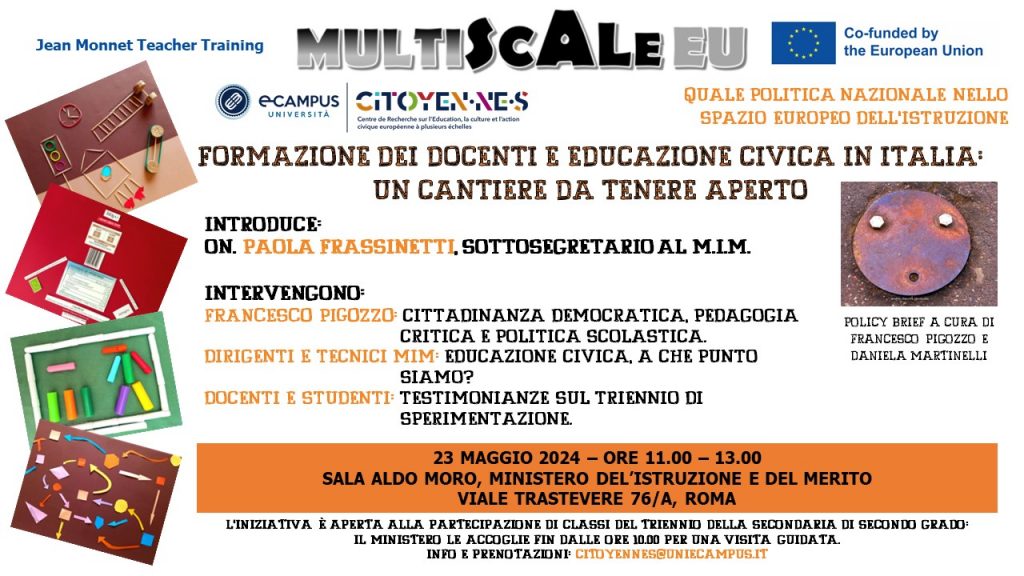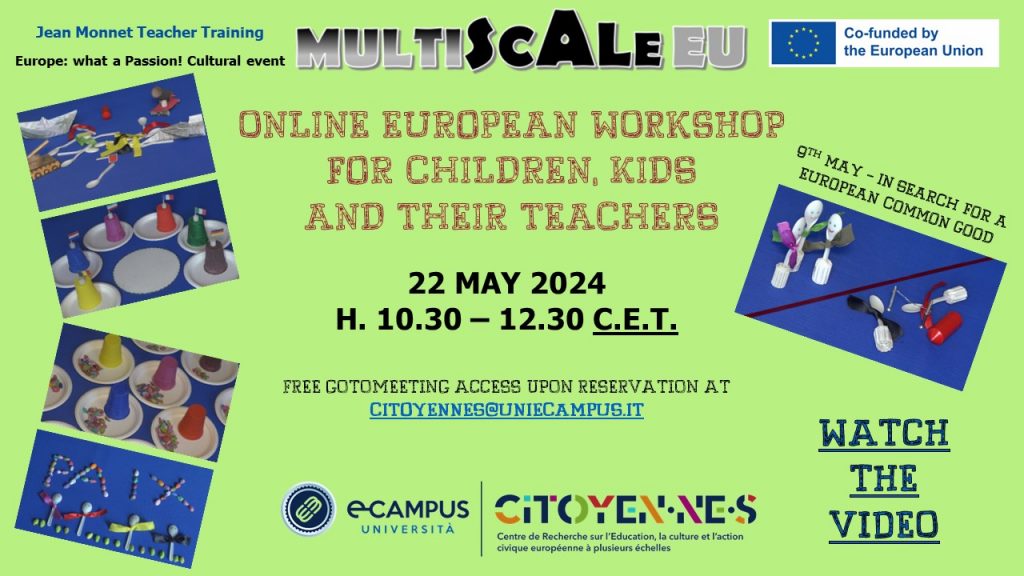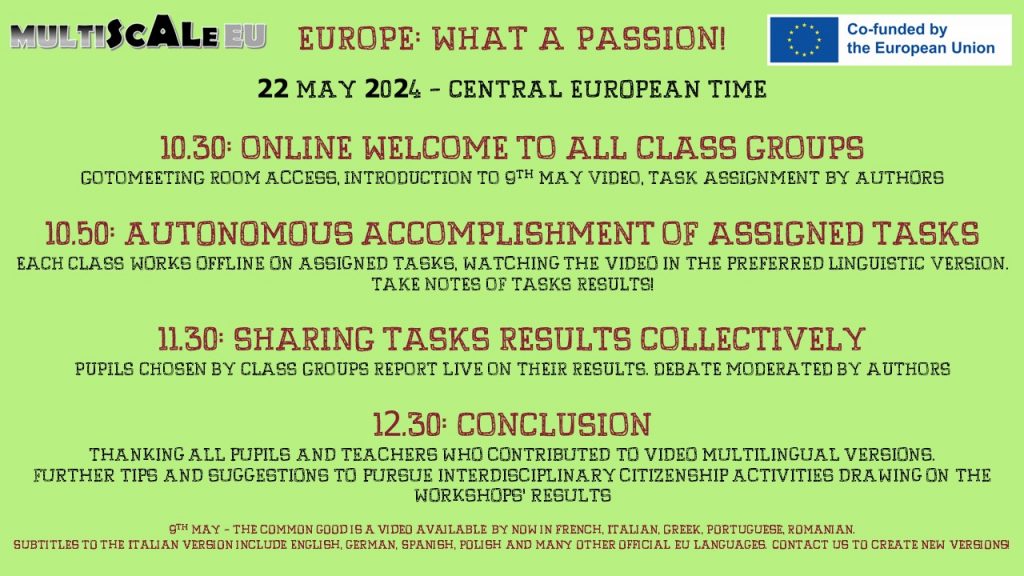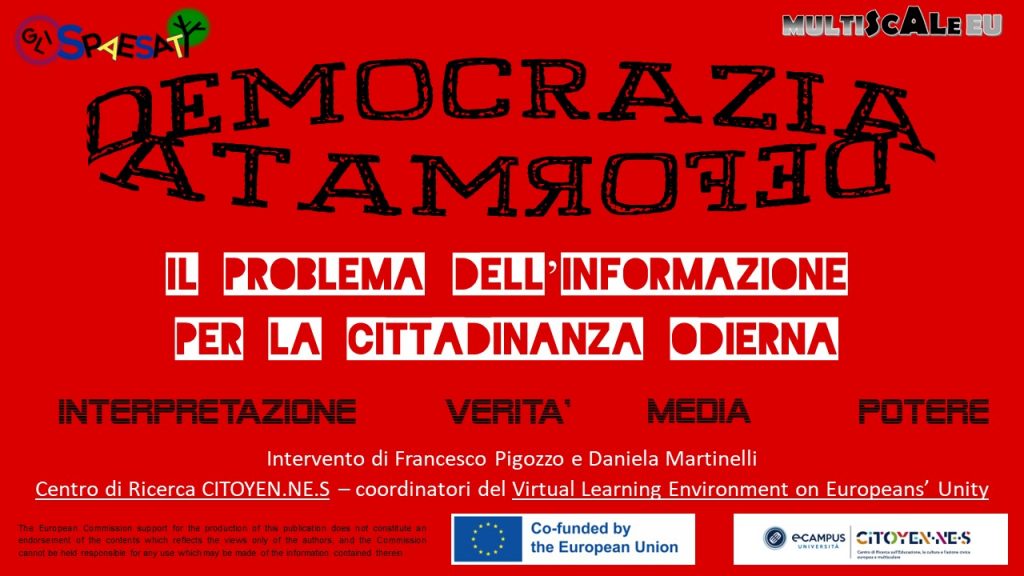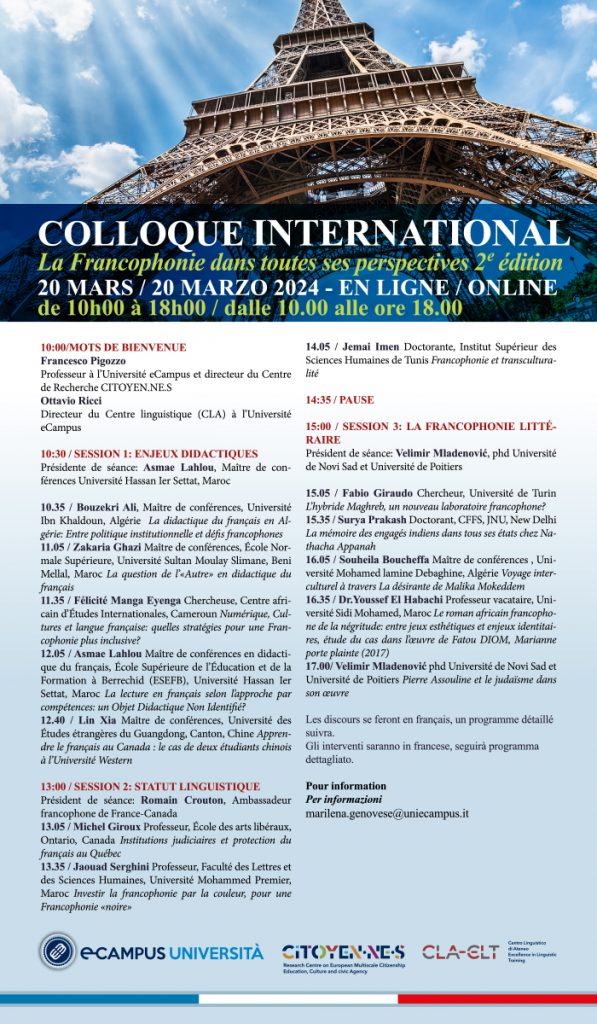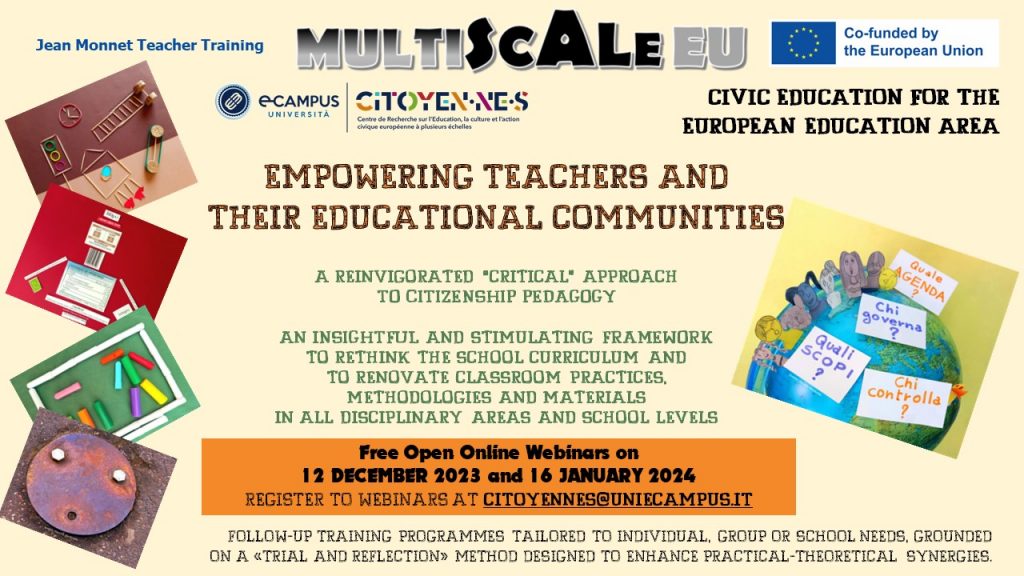Today, 2 July 2024, Iris Knežević interviewed Francesco Pigozzo in the framework of an Erasmus+ project coordinated by Croatian civil society organization Gong and titled “IMPROVING CIVICS IN VET” , whose contents and main objectives are perfectly consistent with the Jean Monnet Teacher Training project MULTISCALE EU, promoted by our Research Centre.
The overall goal of the project is to contribute to a higher level of civic literacy and participation among young people. Specific objectives include increasing the knowledge of youth organisations and NGOs working with young people on the topic of civic education in vocational schools and strengthening the capacity of NGOs to advocate for improvement in the field of civics in vocational schools.
Gong and its partner are currently conducting a comparative analysis of seven countries (Croatia, Germany, Romania, England, France, Norway and Italy), which, in addition to desk research, also includes contributions from so-called key informants: prof. Pigozzo being the one chosen for Italy.
This cooperation is part of a wider cooperation that prof. Pigozzo and Martinelli are developing with Zagreb University as a main Croatian associate partner in Multiscale EU project and beyond.

